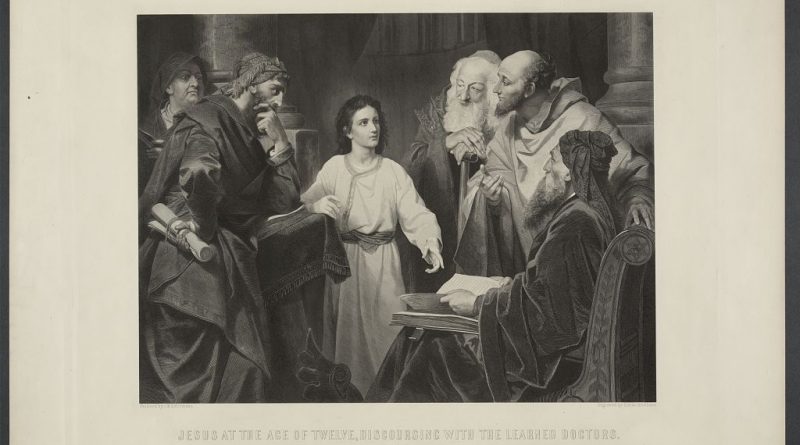Hillel vs Jesus: Jewish and Christian Approaches to Ethics
Hillel and Jesus had very different approaches to business ethics. Jesus’s approach is more radical and ambitious; Hillel’s approach is more pragmatic (and in my opinion, likelier to succeed). Those differences continue to play out today in the way Jews and Christians approach ethical issues.
I was a participant in a workshop last week (March 1, 2017) on “Approaches to Ethical Challenges in Business and Economics: Religious and Cultural Contributions.” The workshop was sponsored by the Austria Israel Academic Network – Innsbruck. I was part of the “Israel” team, presenting a paper on Jewish Perspectives on Business Ethics.
One of the participants, a Christian theologian, presented a paper that included a New Testament – based critique of Hillel’s institution of the prozbul. I think Christians misunderstand the prozbul looking at it through the lens of the New Testament – but for a Jew, it enhances our understanding of the prozbul to be aware of the New Testament critique.
The prozbul was Hillel’s solution to a social problem. In Hillel’s time – the time of Jesus – the laws regarding Sabbatical remission of debts were still functioning. This meant that once every seven years, when the Sabbatical year rolled around on the calendar, all debts were forgiven.
It’s important to understand this in context. Lending money was an act of charity, not business. Jews were forbidden to charge other Jews interest. Let’s say a Jewish farmer didn’t have the money to pay for seed to sow his crops. He could borrow the money from someone to buy seed, and pay it back after the crops came in. If the crop failed, and despite his best efforts to pay the loan back, when the Sabbatical year came along he still had not been able to repay the loan, it was forgiven. The lender couldn’t collect on the loan.
Since the forgiving of debts was based on the calendar, not based on when the loan was granted, a practical problem arose: when it was the sixth year of the Sabbatical cycle, no one made loans anymore, because they assumed there wasn’t enough time for them to get paid back. So a procedure that was designed to help poor people – debt remission – had the unintended consequence of harming poor people because no one would lend them money.
Hillel devised the prozbul as a way around the problem. The prozbul was a mechanism whereby the debt was transferred to a beit din (rabbinic court) that would hold the debt through the Sabbatical year, so that the debt would not be subject to remission.
The presenter cited the Jesus’ movement as resisting Hillel’s prozbul. Jesus told people, “Lend to them without expecting to get anything back“ (Luke 16:35).
Based on the New Testament reading, a contemporary author, Michael Hudson, claims, “Hillel’s prozbul yielded power to creditors and mortgage-holders.” In other words, it was AGAINST the poor person’s rights granted in the Torah.
But that’s not true. The prozbul was NOT initiated to help creditors. It was initiated to help poor people, so that they could continue to borrow money in the 6th year of the Sabbatical cycle. Keep in mind that ALL loans were charity, since there was no interest charged.
Jesus’s approach was radical and ambitious: he was telling people if the Sabbatical year was around the corner they should simply increase their charitable giving, and not worry about getting repaid. But what if you felt secure enough about your financial situation to make a loan, but not secure enough to give someone that much money?
Hillel’s approach was more pragmatic. In an ideal world, people would give more charity, but many won’t. So instead of penalizing poor people with a system that was supposed to help them, Hillel changed the system so that poor people could continue to have access to debt during the final year of the Sabbatical cycle.
Another example of the difference in attitude toward accommodating or rising above human nature can be seen in two stories that in a practical sense had a similar outcome.
One of the presenters shared the parable of the workers in the vineyard from Matthew 20:
For the kingdom of heaven is like a landowner who went out early in the morning to hire laborers for his vineyard. 2. Now when he had agreed with the laborers for a denarius a day, he sent them into his vineyard. 3 And he went out about the third hour and saw others standing idle in the marketplace, 4 and said to them, ‘You also go into the vineyard, and whatever is right I will give you.’ So they went. 5 Again he went out about the sixth and the ninth hour, and did likewise. 6 And about the eleventh hour he went out and found others standing idle, and said to them, ‘Why have you been standing here idle all day?’ 7 They said to him, ‘Because no one hired us.’ He said to them, ‘You also go into the vineyard, and whatever is right you will receive.’ 8 “So when evening had come, the owner of the vineyard said to his steward, ‘Call the laborers and give them their wages, beginning with the last to the first.’ 9 And when those came who were hired about the eleventh hour, they each received a denarius. 10 But when the first came, they supposed that they would receive more; and they likewise received each a denarius. 11 And when they had received it, they complained against the landowner, 12 saying, ‘These last men have worked only one hour, and you made them equal to us who have borne the burden and the heat of the day.’ 13 But he answered one of them and said, ‘Friend, I am doing you no wrong. Did you not agree with me for a denarius? 14 Take what is yours and go your way. I wish to give to this last man the same as to you. 15 Is it not lawful for me to do what I wish with my own things? Or is your eye evil because I am good?’ 16 So the last will be first, and the first last. For many are called, but few chosen.
Human nature is to be envious of people. It’s human nature to compare yourself to others. Studies have shown that if you have two people making $75,000 a year, one living in a community where everyone else makes $100,000 a year and the other in community where other people make $50,000 a year, the person who lives in the community of $50,000 a year people will be happier even if he has exactly the same amount of material well-being as the person who lives in the wealthier community. This suggests that while financially it’s often considered a good idea to have the cheapest house in a good neighborhood, psychologically that might not be a good idea.
Jesus was telling the first workers to get past their envy. To quit worrying about how much the other guy got. But it’s really hard to do that.
I presented the following story from the Talmud:
Rabba bar bar Chana’s porters broke one of his barrels of wine. Rashi explains that they were negligent in this, and clearly liable for damages. Rabba claimed their cloaks as compensation. The porters went and informed Rav of the incident, who instructed Rabba: “Give them back their cloaks.” Rabba bar bar Channa asked, “Is this the law?” knowing that they were liable for the damage. Rav responded: “Yes,” quoting the verse in Mishlei (2:20): “So that you walk in the way of the good.”
Rabba gave back their cloaks, whereupon the porters said to Rav, “We are poor, we worked all day; we are hungry and we have nothing.” Upon hearing their complaint, Rav instructed Rabba to pay them their salary! Once again, Rabba questioned the ruling: “Is this the law?” The porters were contractors, who were paid for doing their job, and certainly had no legal claim on their salary. Rav replied: “Yes,” quoting the second half of the same verse: “And you should watch the path of the righteous.”
At first glance, you might think this is similar to the parable of the workers in the vineyard, in that some workers (in the latter case all workers) are being paid more than they really earned, but there’s a subtle difference.
In the case from the Talmud, Rav was getting Rabba to do more by appealing to things that are consistent with human nature:
- He acknowledged in the sources he used in his response that he was calling on Rabba to go beyond the letter of the law.
- He appealed to Rabba’s ego: don’t you want to walk in the way of the good and watch the path of the righteous?
Both Rabba and the Jesus (presented as the owner of the vineyard) were motivated by compassion in what they told others – but Jesus ignored human nature while Rabba couched his appeal in terms that connect to human nature.
Perhaps we could learn something from each other: perhaps Jews could learn to be more ambitious in what we ask of ourselves, and Christians could learn to ask in ways that take human nature into account.



